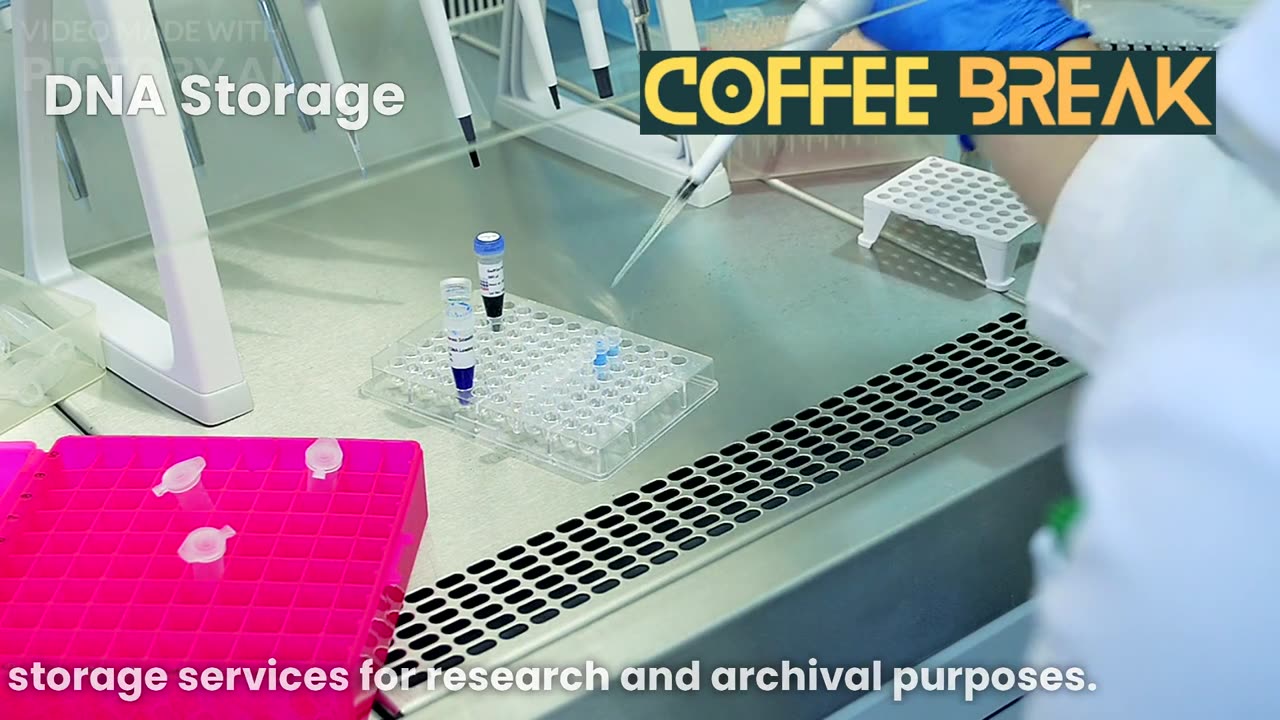Premium Only Content

DNA: The Future of Data Storage
DNA: The Future of Data Storage
The idea of using DNA for computer storage might sound like science fiction, but it's a rapidly evolving field with immense potential. Here's how DNA could revolutionize data storage:
Advantages:
High density: A single gram of DNA can store over 1 exabyte of data, compared to a few terabytes for a hard drive. That means the Library of Congress could fit in a coffee mug, and all the world's data could be stored in a room!
Durability: DNA has a half-life of over 500 years, significantly longer than current storage options. Imagine storing irreplaceable historical documents or vital medical records for millennia!
Archiving: DNA doesn't require electricity or special maintenance, making it ideal for long-term archiving. No more fear of data corruption or obsolete formats!
Self-repairing: DNA naturally repairs itself, reducing the risk of data loss. Think of it as built-in redundancy!
Encoding data in DNA:
Binary data (0s and 1s) is mapped to the four DNA bases (A, C, G, and T).
Synthetic DNA strands are created with the encoded data.
These strands are stored in capsules or frozen for preservation.
Challenges:
Cost: Synthesizing and sequencing DNA is still expensive, but the cost is steadily decreasing.
Speed: Reading and writing data is much slower than with traditional storage. It's more like a "black box" for archiving than everyday use.
Error correction: DNA errors can occur during synthesis and sequencing, necessitating sophisticated error correction algorithms.
Current state:
Scientists have successfully encoded and retrieved digital data in DNA, including the entire English Wikipedia.
Companies like Twist Bioscience and Catalog offer DNA storage services for research and archival purposes.
While not yet mainstream, it's gaining traction for long-term data preservation and niche applications like storing medical records on DNA chips implanted in humans.
In conclusion, DNA storage holds immense potential for the future of data storage. While challenges remain, research and development are rapidly advancing, bringing this once futuristic concept closer to reality. Imagine a world where our most precious data is safely stored in the building blocks of life itself, accessible for generations to come. It's an exciting prospect, and one that I believe will continue to evolve and shape the way we store and preserve information in the future.
Do you have any further questions about DNA storage or other innovative technologies? I'd be happy to discuss them further!
-
 3:06:55
3:06:55
TimcastIRL
5 hours agoDan Bongino To RESIGN, Trump Addresses The Nation
322K376 -
 2:14:08
2:14:08
Barry Cunningham
5 hours agoLIVE BREAKING NEWS: President Trump Addresses The Nation! And More News!
45.3K16 -
 LIVE
LIVE
ThatStarWarsGirl
7 hours agoTSWG LIVE: Discussing STAR WARS News with Special Guest Star Wars Theory!
552 watching -
 2:42:40
2:42:40
Laura Loomer
5 hours agoEP162: LIVE: President Trump Addresses The Nation
47K24 -
 1:32:05
1:32:05
Adam Does Movies
10 hours ago $1.86 earnedRob Reiner Films + Movie News + AMA - Live!
18.9K -
 47:57
47:57
Professor Nez
8 hours ago🚨LIVE NOW: President Trump Addresses the Nation from the Oval Office
27.2K24 -
 28:17
28:17
The White House
5 hours agoPresident Trump Delivers an Address to the Nation
66.4K114 -
 LIVE
LIVE
Drew Hernandez
22 hours agoTRUMP ADDRESSES THE NATION & BONGINO ANNOUNCES FBI DEPARTURE?
1,000 watching -
 2:37:30
2:37:30
Badlands Media
16 hours agoBadlands Media Special Coverage - MY FELLOW AMERICANS the Alpha Warrior Show & Redpill Project
59.6K25 -
 22:54
22:54
Jasmin Laine
11 hours agoMedia MELTS DOWN as Poilievre Surges—Ottawa Loses Control of the Narrative
27.8K14